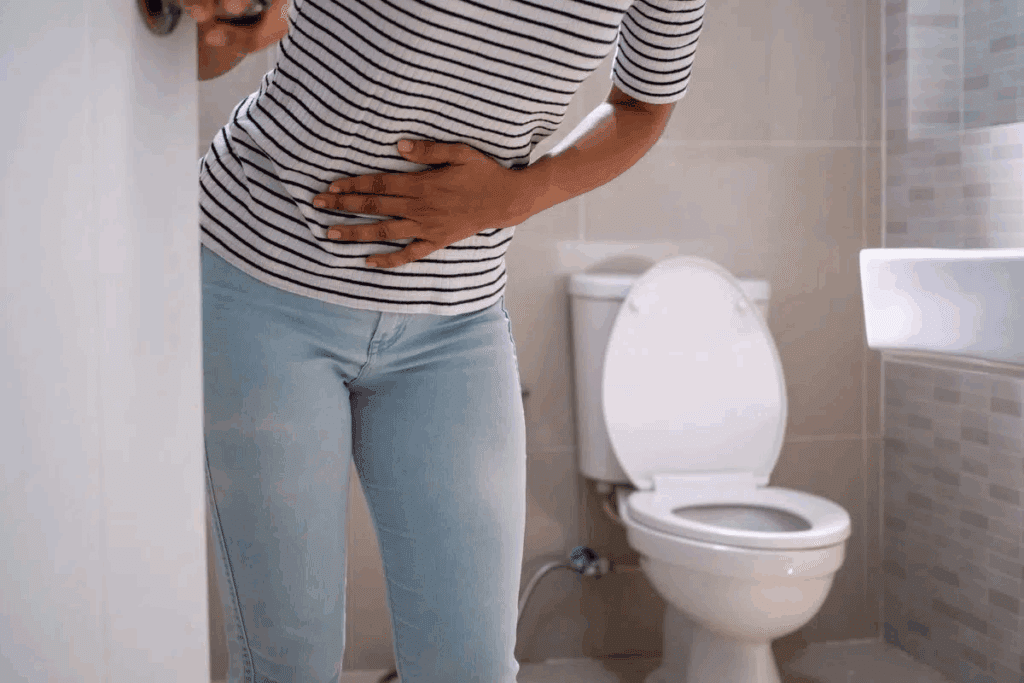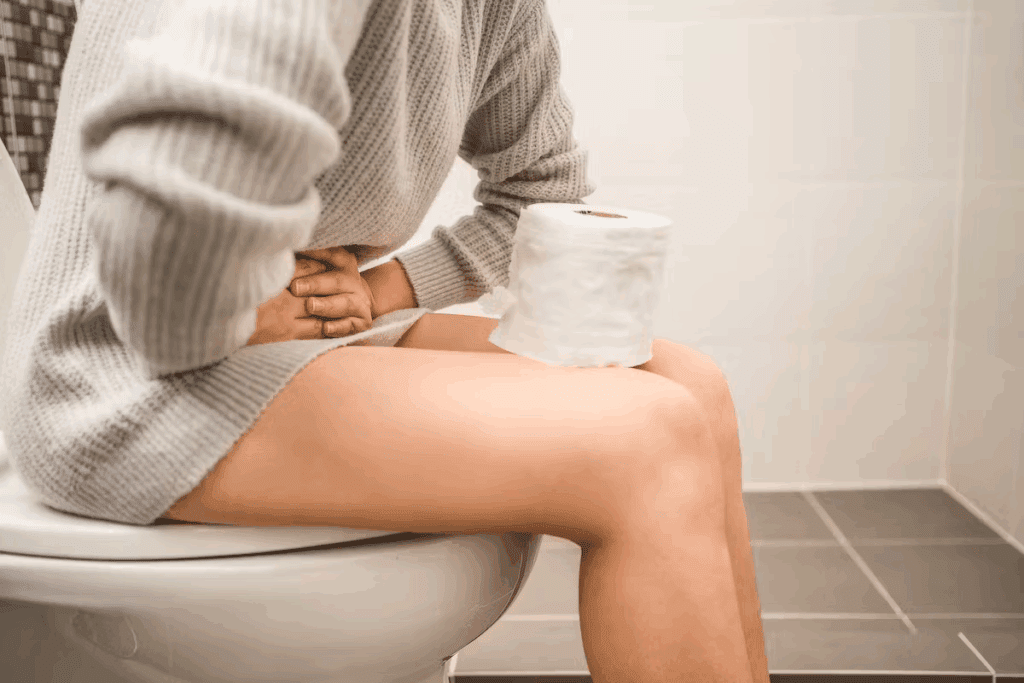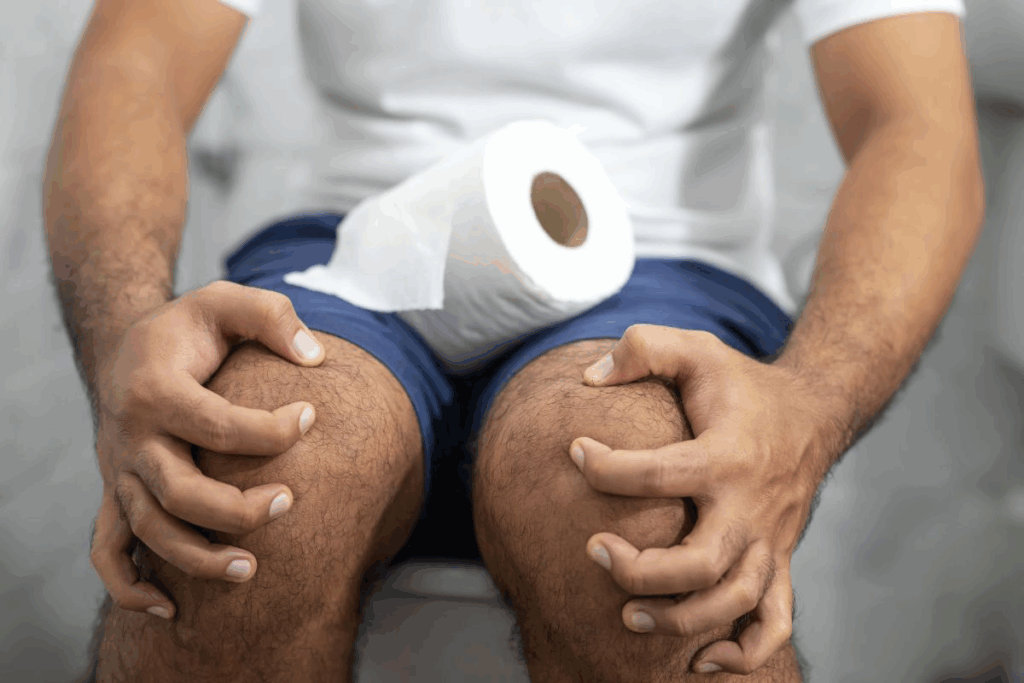
Many patients wonder if their kidney stones could be causing their digestive discomfort.can kidney stones cause diarrhoeaCan Low Hemoglobin Cause Fever: Crucial Facts Explained While kidney stones are not a direct cause of diarrhea, research shows a complex link between them. Healthcare providers must address this link fully.
It’s important to know if your stomach problems come from the stones, dehydration, or other effects. At Liv Hospital, we provide detailed checks and care focused on the patient. This helps tackle these complex issues effectively.

It’s important to know about kidney stones to manage their symptoms and prevent them. Kidney stones are hard objects made of minerals and salts. They can be as small as a grain of rice or as big as a golf ball.
The main symptom of kidney stones is intense, sharp pain. This pain is often described as one of the most severe pains. It usually strikes in the side, lower back, or abdomen.
Other symptoms include nausea, vomiting, and sometimes fever and chills if an infection is present.
Kidney stones form when there’s an imbalance in urine composition. This imbalance can be due to dehydration, diet, and genetic predisposition. Dehydration makes the minerals in urine more concentrated, raising the risk of stone formation.
There are several types of kidney stones, each with different causes:
“The type of kidney stone can influence the treatment approach and preventive measures.”
The primary symptom of kidney stones is severe pain. This pain is often accompanied by other symptoms such as:
If left untreated, kidney stones can lead to complications. These include urinary tract infections or kidney damage. It’s important to understand the symptoms and seek medical attention promptly.

It’s important to know about kidney stones because nearly 600,000 Americans get them every year. This big number shows we need to learn more about why they happen and who gets them.
Kidney stones are a big health problem in the U.S. About 600,000 people get them each year. This shows a mix of risk factors and trends in who gets them.
Many things can make you more likely to get kidney stones. Not drinking enough water is a big one because it makes your urine more concentrated. Eating certain foods, being overweight, and having some diseases also raise your risk.
Some groups are more likely to get kidney stones. For example, men get them more than women, but the difference is getting smaller. Knowing who is at risk helps doctors give better advice. By understanding these trends, doctors can tailor prevention plans.
The chance of getting kidney stones varies by age, gender, and where you live. Looking at these patterns helps us understand the problem better. This way, we can try to make it less common.
Diarrhea is when you have a lot of watery bowel movements. It’s a sign of something else going on, not a disease itself. It can really affect your life and health. We’ll look at what causes diarrhea, its types, and how it impacts your health.
Diarrhea can be either acute or chronic. Acute diarrhea happens for a short time, usually less than a week. It’s often from viruses or bacteria. Chronic diarrhea lasts more than four weeks. It might mean you have something like IBS or IBD.
“Chronic diarrhea can lead to dehydration, which concentrates minerals in urine, promoting kidney stone formation,” as noted by medical professionals. This shows why it’s key to manage diarrhea well.
There are many reasons for diarrhea. These include infections, food issues, and health problems. Common causes include:
Finding out why you have diarrhea is important for treatment. For example, if it’s from a bacterial infection, you might need antibiotics.
Diarrhea is usually not a big deal, but sometimes it is. You should see a doctor if:
If you’re in any of these situations, get medical help fast. Dehydration can be very serious if not treated right away.
In summary, knowing about diarrhea, its causes, types, and health effects is key. Recognizing when it’s serious can help you get the right care on time.
Recent studies have looked into if kidney stones and diarrhea are linked. Kidney stones are known for causing pain and urinary problems. But, research hints at a more complex tie between kidney stones and digestion.
There’s no direct link between kidney stones and diarrhea, but a connection exists. People with kidney stones might face more digestive issues, like diarrhea. This shows a link between the two.
Several factors could influence this connection. These include:
A big study found a link between chronic diarrhea and kidney stones. It showed a 1.681 odds ratio. This means people with chronic diarrhea are more likely to get kidney stones.
This study shows how important it is to look at both kidney stones and digestion together. It calls for a full approach to treating patients with these issues.
Experts have different views on the kidney stones and diarrhea link. But most agree it’s complex. They think shared factors, like diet or metabolic issues, might play a role.
More research is needed to grasp this connection fully. But, the current findings are already helping doctors treat patients with both kidney stones and digestive problems.
The Indirect Mechanisms: How Kidney Stones May Trigger Digestive Symptoms
Kidney stones can start a chain of events that affects digestion. We’ll look at how they can indirectly mess with bowel function. This includes intense pain, inflammation, and sometimes, blockages in the urinary tract.
The pain from kidney stones can mess with the nervous system. This can change how the digestive system works, affecting bowel movements. It’s a complex process involving many neural pathways.
Research shows that severe pain can slow down the gut, causing constipation in some. In others, it might lead to diarrhea because of certain neurotransmitters. Each person reacts differently to pain, making it hard to predict the exact effect.
Inflammation, often from urinary tract infections (UTIs), can also trigger digestive symptoms. When kidney stones get infected, they can cause a UTI. This leads to inflammation that can affect the gut.
This inflammation can cause symptoms like diarrhea or changes in bowel habits. It shows how different parts of the body can interact and affect each other.
Some medicines used to treat kidney stones can mess with bowel movements. For example, opioids can cause constipation. Antibiotics might lead to diarrhea.
In rare cases, big kidney stones can block the urinary tract. This can disrupt the balance of gut bacteria. Changes in gut bacteria can lead to various digestive symptoms.
While this is rare, it’s important to understand. It shows how kidney stones can affect the body in many ways.
| Mechanism | Effect on Digestive System | Potential Symptoms |
| Pain-Induced Response | Alters gut motility | Constipation or Diarrhea |
| Inflammatory Processes | Affects gastrointestinal tract | Diarrhea, Changes in bowel habits |
| Medication Side Effects | Impacts bowel movements | Constipation, Diarrhea |
| Urinary Blockages | Disrupts intestinal bacteria | Gastrointestinal symptoms |
Chronic diarrhea can lead to kidney stones, mainly because of dehydration. When we have chronic diarrhea, we lose a lot of fluids. This can cause dehydration if we don’t drink enough water.
Dehydration from chronic diarrhea makes minerals in urine more concentrated. This increases the chance of kidney stones. When we don’t have enough fluids, our urine becomes more concentrated. This means more minerals like calcium and oxalate, which are common in kidney stones.
Dehydration also reduces blood flow to the kidneys. This can cause kidney injury and make it harder for the body to remove waste and keep electrolytes balanced.
Chronic diarrhea can cause big electrolyte imbalances. We lose important minerals like potassium, sodium, and calcium. These minerals help prevent kidney stones.
An imbalance can mess with our body’s functions. For example, low electrolyte levels can make it hard for the kidneys to control mineral levels. This can lead to kidney stones.
Chronic diarrhea often means our intestines aren’t working right. This makes it hard for our body to absorb minerals. As a result, we might excrete more minerals in our urine.
This situation is perfect for kidney stones to form. For instance, if we can’t absorb oxalate well, we’ll have more oxalate in our urine. Oxalate is a common part of kidney stones.
It’s important to understand these connections to prevent kidney stones in people with chronic diarrhea. By fixing dehydration, electrolyte imbalances, and intestinal issues, we can lower the risk of kidney stones.
Inflammatory bowel disease (IBD) affects more than just the stomach. It includes Crohn’s disease and ulcerative colitis. These conditions can raise the risk of getting kidney stones.
Crohn’s disease can lead to more oxalate being absorbed in the gut. This increases the chance of getting calcium oxalate stones, the most common type of kidney stone. This happens because Crohn’s disease can damage the intestines, changing how they absorb nutrients and minerals.
People with Crohn’s disease face higher risks. This is due to several factors:
Ulcerative colitis mainly affects the colon but can also impact the kidneys. The inflammation can change how the body absorbs water and electrolytes. This can make the urine more concentrated, raising the risk of stone formation.
Also, treatments for ulcerative colitis can affect kidney function and stone risk.
It’s important to manage IBD and its complications to lower kidney stone risk. This requires a multi-faceted approach, including:
Understanding the link between IBD and kidney stones helps healthcare providers offer better care. They can manage both conditions at the same time, improving patient outcomes.
Kidney stones and diarrhea together make diagnosis and treatment harder. Healthcare providers need a special plan. They must think about how these two conditions affect the patient’s health.
Diagnosing kidney stones in patients with diarrhea is complex. We look at the patient’s history, symptoms, and risk of dehydration. Dehydration can make minerals in urine more concentrated, raising the risk of stones.
The process includes:
Treating kidney stones with diarrhea needs a detailed plan. We aim to reduce pain from stones and manage diarrhea to avoid dehydration.
| Treatment Aspect | Considerations for Kidney Stones | Considerations for Diarrhea |
| Hydration | Encouraging fluid intake to help pass stones | Managing fluid loss due to diarrhea |
| Pain Management | Using analgesics to control pain | Avoiding medications that could worsen diarrhea |
| Dietary Adjustments | Modifying diet to reduce stone formation risk | Adjusting diet to manage diarrhea symptoms |
It’s important to manage diarrhea during kidney stone episodes. This prevents dehydration and electrolyte imbalances. We suggest:
Patients should get medical help fast if they have severe symptoms. This includes:
It’s key for patients to work closely with their healthcare providers to manage both conditions well.
The connection between kidney stones and digestive health is complex. Kidney stones and diarrhea are linked through pain and inflammation. This shows the need for a full care approach.
Grasping this connection helps us treat both conditions better. It leads to better health results for patients. We can improve how we diagnose, treat, and prevent these issues.
This relationship shows we need a complete care plan. We must think about how kidney stones affect digestion and vice versa. This ensures patients get the best support and treatment.
By focusing on the whole picture, we can make care better. This leads to better health and happiness for those affected.
There’s no direct link between kidney stones and diarrhea. But, studies show a complex relationship between the two.
Kidney stones can indirectly affect bowel movements. This happens through pain, inflammation, and side effects from treatment.
Yes, chronic diarrhea can raise the risk of kidney stones. It does this by causing dehydration and electrolyte imbalances.
Inflammatory bowel disease can increase the risk of kidney stones. This is due to poor nutrient absorption and body chemistry changes.
Diagnosing and treating both conditions together is complex. It requires detailed diagnostic methods and treatment plans for both issues.
Yes, dehydration from diarrhea can lead to mineral concentration in urine. This increases the risk of stone formation.
Yes, some medications for kidney stones can affect bowel movements. This might cause diarrhea as a side effect.
Research shows a strong link between chronic diarrhea and kidney stone risk. The odds ratio is 1.681.
Managing inflammatory bowel disease is key to lowering kidney stone risk. It helps address malabsorption and body chemistry issues.
The main symptoms of kidney stones include severe pain, nausea, and vomiting. Fever and chills may also occur if there’s an infection.
Subscribe to our e-newsletter to stay informed about the latest innovations in the world of health and exclusive offers!
WhatsApp us